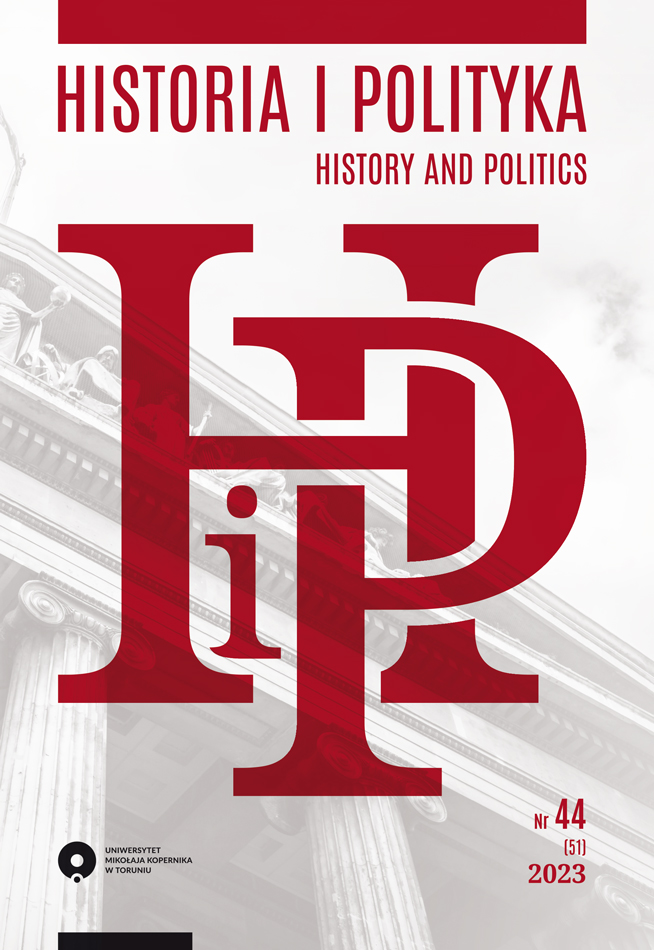Comparison of the Western and Traditional African Methods of Conflict Resolution on the Example of International Criminal Tribunal of Rwanda (ICTR) and Gacaca Method in the Context of the 1994 Rwanda Genocide
DOI:
https://doi.org/10.12775/HiP.2023.013Słowa kluczowe
conflicts, Gacaca courts, International Criminal Tribunal for Rwanda (ICTR), Western methods of conflict resolution, African traditional methods of conflict resolutionAbstrakt
Local traditions of conflict resolution have been overlooked since the dominant methods of dealing with these issues are often centered on Western approaches to conflict resolution. This highlights the urgent need to prioritize engagement with indigenous knowledge and processes, particularly in conflict resolution and broadening our perspectives. While conflicts continue to rise in Africa(post-independence), we need to revisit the conflict resolution approaches that incorporate local traditions embedded in various African communities. The article highlights African approaches towards conflict resolution in Sub-Saharan Africa, e.g., such methods as Gacaca, in comparison with the Western concepts of conflict resolution. The author’s extensive experience and fascination with African traditions also makes it possible to introduce readers to various issues of peace studies of African origins. The qualitative methods with a reliance on various reports from Western and African peace and security experts as well as subject literature discourses on African indigenous conflict resolution methods have been used for the purposes of the article. The author’s analysis is also based on the interviews. Interviews were conducted to evaluate Gacaca courts and the procedures which included confessions, punishment or forgiveness then followed by reconciliation and integration into the society. The interviews included the victims of the genocide, a retired journalist, a former member of the Rwandan government, and a former employee of a non-governmental organization.
Bibliografia
Akhavan, P. (2001). Beyond Impunity: Can International Criminal Justice Prevent Future Atrocities? American Journal of International Law, 95(1), 7–31. DOI: 10.2307/2642034.
Avruch, K. (1991). Introduction: Culture and Conflict Resolution. In: K. Avruch, P.W. Black, & J.A. Scimecca (Eds.). Conflict Resolution: Cross-Cultural Perspectives (pp. 1–17). New York: Greenwood Press.
Brigg, M., & Bleiker, R. (Eds.). (2011). Mediating across Difference: Oceanic and Asian Approaches to Conflict Resolution. Honolulu: University of Hawaii Press.
Brock-Utne, B. (2004). Peace Research with A Diversity Perspective: A Look to Africa. International Journal of Peace Studies, 9(2), 109–123. Retrieved from: http://www.jstor.org/stable/41852923.
Howland, T., & Calathes, W. (1998). The U.N.’s International Criminal Tribunal: Is It Justice or Jingoism for Rwanda? A Call for Transformation. Virginia Journal of International Law, 39(1), 135–167.
Longman, T. (2009). An Assessment of Rwanda’s Gacaca Courts. Peace Review, 21(3), 304–312. DOI: 10.1080/10402650903099369.
Magnarella, P.J. (2000), Justice in Africa: Rwanda’s Genocide, Its Courts, and the UN Criminal Tribunal. London: Routledge. DOI: 10.4324/9781315204291.
Morris, H.M. (1997). The Trials of Concurrent Jurisdiction: The Case of Rwanda. Duke Journal of Comparative & International Law, 7, 349–374. Retrieved from: https://scholarship.law.duke.edu/faculty_scholarship/426/.
Mwagiru, M. (2001). Conflict Management in Africa: Lessons Learnt and Future Strategies. Nairobi: Friedrich Ebert Stiftung and Centre for Conflict Research.
Roberts, A. (1998). Implementation of the Laws of War in Late 20th-Century Conflicts: Part II. Security Dialogue, 29(3), 265–280. DOI: 10.1177/0967010698029003002.
Shinoda, H. (2002). Peace-Building by the Rule of Law: An Examination of Intervention in the Form of International Tribunals. International Journal of Peace Studies, 7(1), 41–58. Retrieved from: https://www3.gmu.edu/programs/icar/ijps/vol7_1/Shinoda.htm.
United Nations International Residual Mechanism for Criminal Tribunals. (2015). Retrieved from: https://unictr.irmct.org/en/tribunal.
United Nations International Tribunal for Rwanda. (2002, July 2). Seventh Annual Report of the International Criminal Tribunal for the Prosecution of Persons Responsible for Genocide and Other Serious Violations of International Humanitarian Law Committed in the Territory of Rwanda and Rwandan Citizens Responsible for Genocide and Other Such Violations Committed in the Territory of Neighbouring States between 1 January and 31 December 1994. Retrieved from: https://unictr.irmct.org/sites/unictr.org/files/legal-library/020702-annual-report-en.pdf.
United Nations Security Council. (1994, November 8). Security Council Resolution 955 [Establishment of the International Criminal Tribunal for Rwanda]. S/RES/955. Retrieved from: https://www.refworld.org/docid/3b00f2742c.html.
Pobrania
Opublikowane
Jak cytować
Numer
Dział
Licencja
Prawa autorskie (c) 2023 Brian John Chaggu

Utwór dostępny jest na licencji Creative Commons Uznanie autorstwa – Bez utworów zależnych 4.0 Międzynarodowe.
Uniwersytet Mikołaja Kopernika w Toruniu respektuje prawo do prywatności i ochrony danych osobowych autorów.
Dane autorów nie są wykorzystywane w celach handlowych i marketingowych. Redaktorzy i recenzenci są zobowiązani do zachowania w poufności wszelkich informacji związanych ze złożonymi do redakcji tekstami.
Autor, zgłaszając swój tekst wyraża zgodę na wszystkie warunki i zapisy umowy licencyjnej (określającej prawa autorskie) z Uniwersytetem Mikołaja Kopernika w Toruniu.
Statystyki
Liczba wyświetleń i pobrań: 1572
Liczba cytowań: 0



